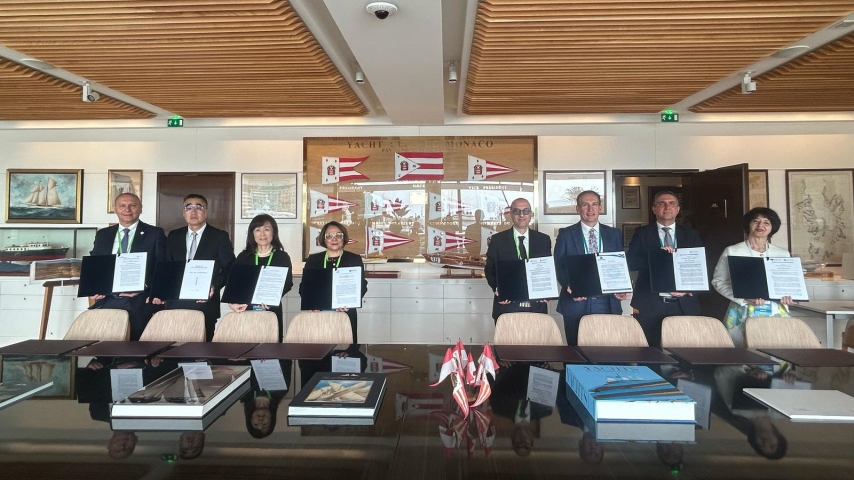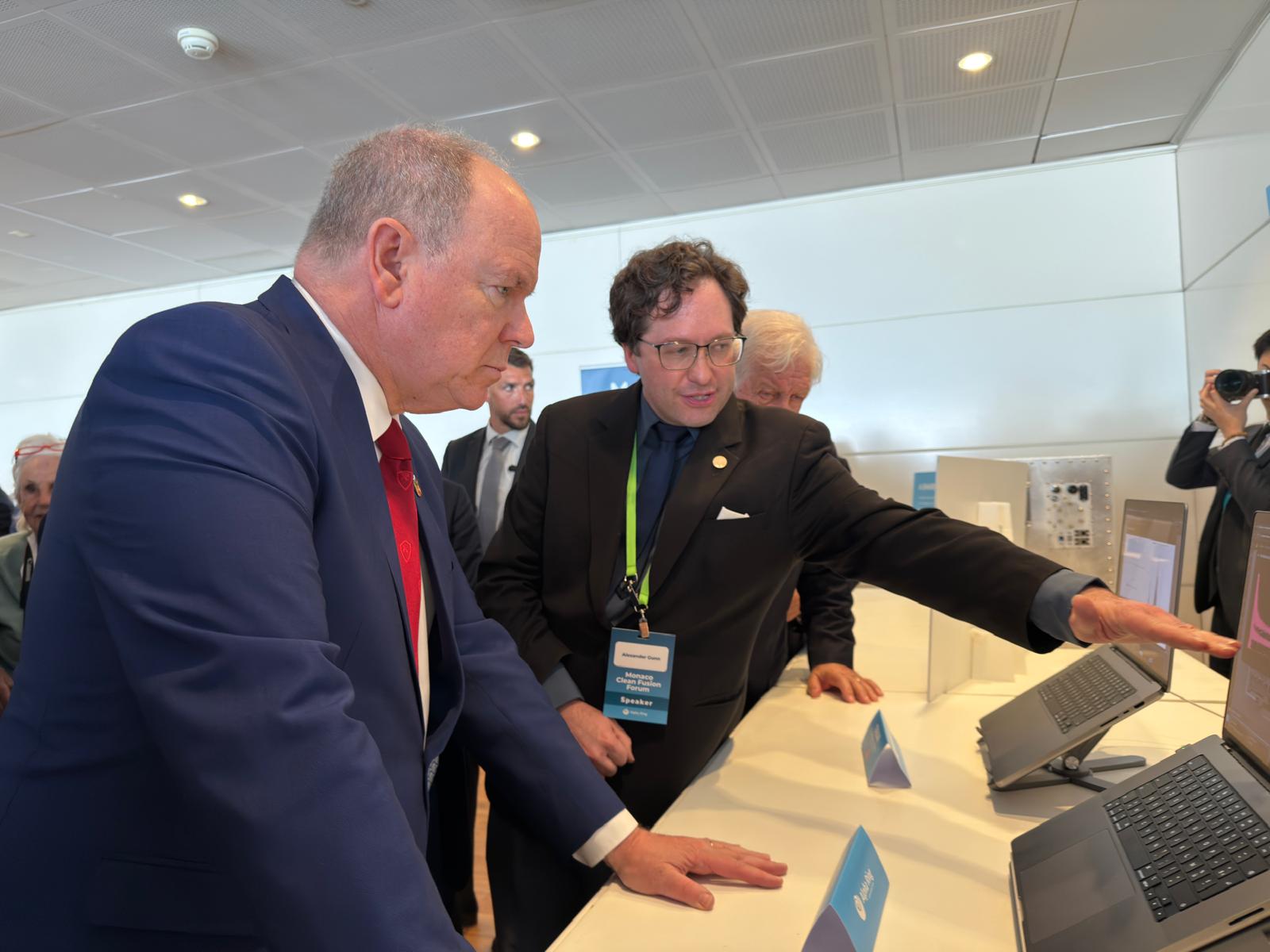
Photo: The signing ceremony, L-R: Dr. Luciano Martini, Dr. Quen Wang, Dr. Huey-Jen Su, Dr. Isolda Costa, Dr. Gianluca Gregori, Dr. Jason Harris, Dr. Massimiliano Fratoni, Dr. Gordana Lastovicka-Medin.
Monaco, 28 April 2025 – Imagine a world where clean, limitless energy is no longer a distant dream but a reality shaped by the brightest minds of tomorrow. At the Monaco Clean Fusion Forum, Alpha Ring, a trailblazer in micro-fusion technology, took a bold step toward that future by forging a historic partnership with some of the world’s most prestigious research institutions, including UC Berkeley, the University of Oxford, and Brazil’s Nuclear Energy Research Institute (IPEN). This collaboration, sealed through a Memorandum of Understanding (MoU), isn’t just about science—it’s about inspiring a new generation to unlock the power of the stars.
The heart of this initiative is the Alpha-E, a compact, tabletop fusion device that looks more like a futuristic sculpture than a traditional reactor. Unlike the massive, complex machines of past fusion experiments, the Alpha-E is safe, user-friendly, and designed to fit into university labs. By placing these devices in the hands of researchers and students, Alpha Ring is democratizing fusion science, turning classrooms into hubs of discovery and igniting curiosity about the universe’s most powerful energy source.
Peter Liu, Alpha Ring’s CEO, captured the spirit of the moment: “We’re not just sharing technology; we’re sharing a vision. By giving universities the tools to explore fusion, we’re empowering students and researchers to dream big and accelerate humanity’s journey toward a clean energy future.”

Photo: Peter Liu’s opening speech to the Monaco Clean Fusion Forum.
A Global Alliance of Minds
The MoU was signed by an inspiring lineup of scholars from institutions across the globe, each bringing unique perspectives to the fusion frontier: Macau University of Science and Technology, Macau (Dr. Quen Wang); National Cheng Kung University, Taiwan (Dr. Huey-Jen Su, Professor Emeritus of Environmental Health); Nuclear Energy Research Institute (IPEN), Brazil (Dr. Isolda Costa, IPEN Superintendent); Purdue University, USA (Dr. Jason Harris, Professor of Radiological Health Sciences); Ricerca sul Sistema Energetico, RSE S.p.A., Italy (Dr. Luciano Martini, Director of Materials and Generation Technologies); University of California, Berkeley, USA (Dr. Massimiliano Fratoni, Chair of Nuclear Engineering); University of Montenegro, Montenegro (Dr. Gordana Lastovicka-Medin, Professor of Physics); and University of Oxford, UK (Dr. Gianluca Gregori, Professor of Physics). These institutions aren’t just receiving equipment—they’re joining a global network of discovery. Each Alpha-E device links to Alpha Ring’s Fusion AI Data Center, a digital platform that feels like something out of science fiction. Using real-time analytics and high-performance computing, it weaves together experimental data, simulations, and theoretical insights, creating a collaborative space where ideas can spark and evolve. This isn’t just about crunching numbers; it’s about building a community of innovators who can learn from each other’s breakthroughs.
Why This Matters
Fusion energy, the process that powers the sun, has long been the holy grail of clean energy. It promises abundant power with no greenhouse gases or long-lived radioactive waste. But fusion research has often been confined to elite labs with billion-dollar budgets. Alpha Ring is changing that. By making fusion accessible to universities, they’re nurturing a diverse pool of talent—students who might one day solve the final puzzles of fusion or apply its principles in unexpected ways, from medical therapies to space exploration.
The Alpha-E devices are more than tools; they’re invitations to explore. They allow students to experiment with real fusion processes, observe reactions, and test theories in ways that were once unimaginable outside specialized facilities. This hands-on approach could inspire breakthroughs that ripple far beyond energy, touching fields like healthcare, where fusion techniques are already showing promise in treatments like boron-neutron capture therapy.

Photo: Alexander Gunn showing Prince Albert II a demonstration of the Fusion AI Date Centre.
A Vision Rooted in Collaboration
Alpha Ring, with roots in California and research hubs in Taiwan and Europe, is no stranger to bold ideas. Their partnerships with institutions like MIT, Oxford, and UC Berkeley reflect a commitment to open, collaborative science. At the Clean Fusion Forum, the atmosphere was electric—scientists, students, and visionaries shared stories of what fusion could mean for a world grappling with climate change and energy demands.

